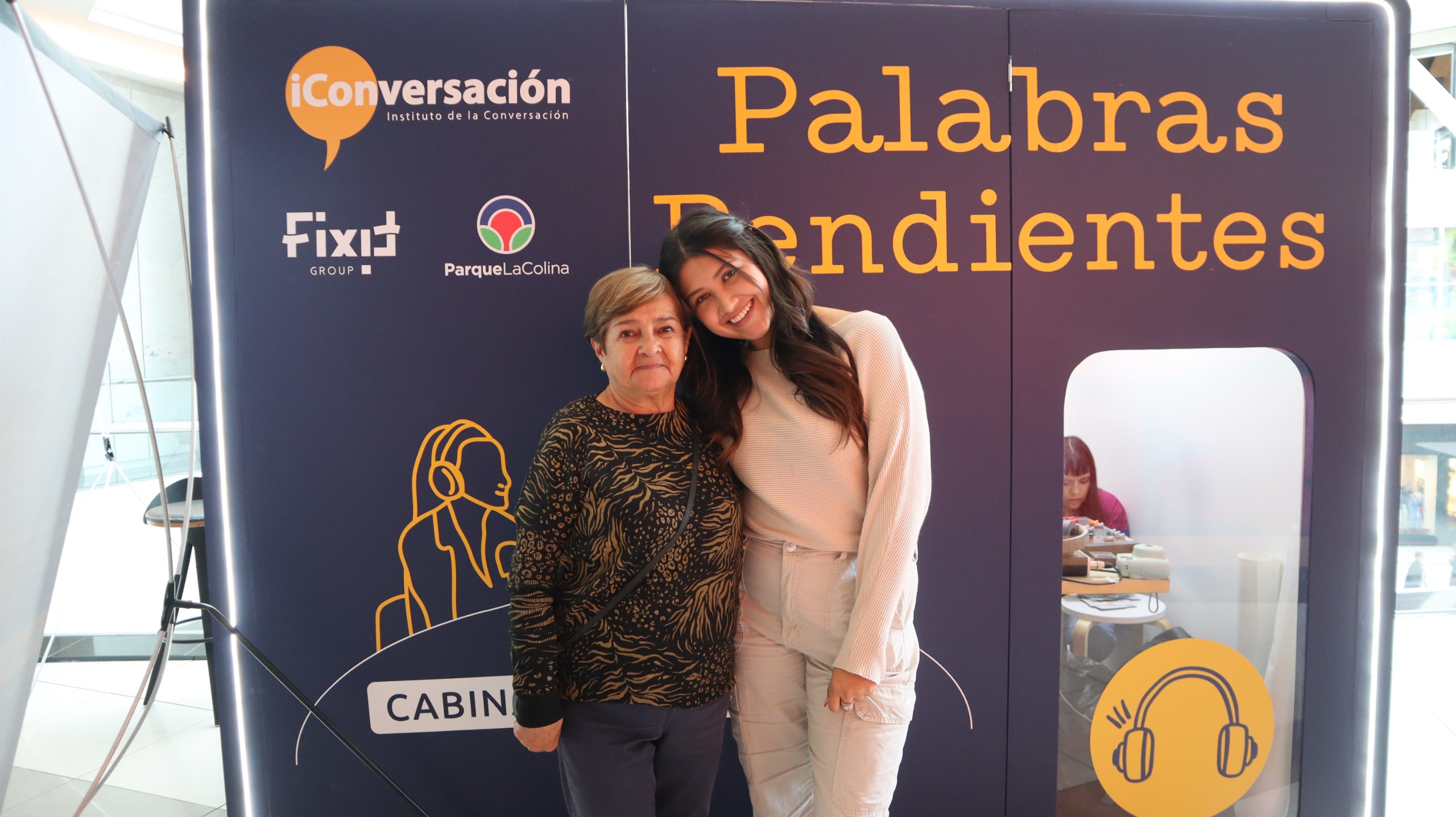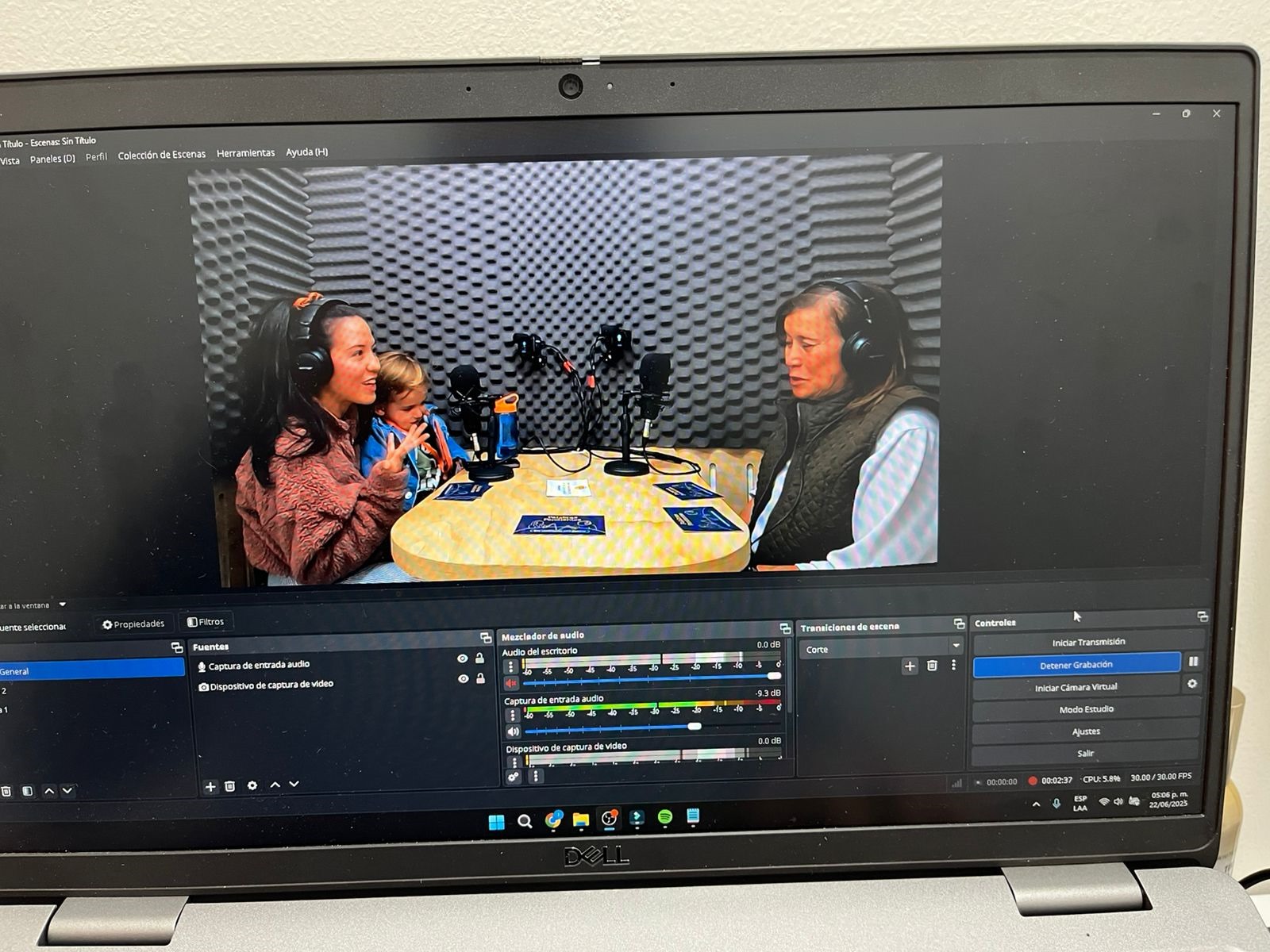Let's talk about unwanted loneliness

At the end of last year, the Netflix series A Man on the Inside premiered, starring the great actor Ted Danson (Cheers and CSI). In half-hour episodes, the series tells the story of a recently widowed, retired tech executive.
In her search for a new career and, especially, some companionship, she answers a press ad asking a law firm to recruit someone to infiltrate a nursing home and help them uncover the identity of the stolen valuable necklace. The series is based on the Chilean documentary "The Mole Agent," which depicted a true story. However, the truth is that both productions, more than detective stories or spy thrillers, depict the reality of a rapidly growing population segment worldwide: people over 60. This means that the world is aging, and Colombia is certainly no exception.
According to the UN, approximately 14 percent of the global population is over 60 years old, and this figure is estimated to reach 16.5 percent by 2030 and exceed 21 percent by 2050. Between 2020 and 2025 alone, this population will grow at an annual rate of 3 percent—twice as fast as the general population.
One of the greatest challenges associated with aging is precisely unwanted loneliness, a term that, although it may seem obvious, has serious implications for mental and physical health. Sixty-two percent of depression cases and 29 percent of anxiety cases in adults over 60 are due to unwanted loneliness.
This is due to two phenomena moving in opposite directions: on the one hand, the increase in life expectancy, and on the other, the decline in birth rates. This creates enormous challenges in terms of public policy, health, pensions, and care, but it also opens the door to new opportunities to develop a very promising economy, which experts call the "silver economy."
Colombia, of course, is no exception. Currently, 9 million people in Colombia are over 60 years old, representing approximately 14 percent of the population. This figure is estimated to grow significantly by 2050. Despite this, the country has failed to catch up in public policies and services for this population. It is within this framework that the "Palabras Pendientes" initiative was born.

The Pending Conversations booth is in the La Colina Shopping Center. Photo: Conversation Institute
Amid the complexity of the 'silver economy,' this proposal by the Institute of Conversation (Icon) in partnership with the Sesana Foundation, the company Fixit, with the support of the Parque La Colina Shopping Center, addresses what they poetically but also painfully call 'unwanted loneliness.'
The genesis of this project has to do with a service that the company Fixit provides to this population, helping them when their appliances—TV, refrigerator, computer, etc.—break down. This is no small problem, because 20 or 30 years ago, TVs only had two buttons, one for channels and one for volume, and today they have hundreds of drop-down menus that not even digital natives fully understand, much less those of Generation X and earlier. It turns out that the technicians in charge of this mission began to report that, frequently, when they arrived at the homes or apartments of older adults who had requested the service, they found that all the appliances were in perfect working order. Some wrote in their reports that the visit had basically consisted of a conversation with the clients over a glass of coffee. This situation alerted the company, and they discovered that the real need, what needed to be repaired, was something else called loneliness.
According to Ángela Suárez, president of the Institute, "one of the greatest challenges associated with aging is precisely unwanted loneliness, a term that, although it may seem obvious, has serious implications for mental and physical health. 62 percent of cases of depression and 29 percent of cases of anxiety in adults over 60 are due to unwanted loneliness." Furthermore, people who suffer from it are 29 percent more likely to suffer heart attacks and 40 percent more likely to suffer cardiovascular accidents, making it a public health problem.
The Conversation Institute (ICon) is a 13-year-old corporate foundation dedicated to fostering respectful conversations and using innovative formats to address issues of social impact. The Institute has been working on a series of conversations for adults over 80, recorded in a special room, with the goal of creating a legacy and preserving the voices of individuals.
With this experience, Fixit, the Sesana Foundation (which works on longevity), and Parque La Colina joined forces with ICon to develop the "Pending Words" project, which creates a space where older adults, not just those 80 and older, can hold conversations with others, primarily family and friends. Initially, this exercise was carried out at the Institute's headquarters in Bosque Izquierdo, but the logistics involved forced its creators to break out of the box, or rather, the studio, and take it elsewhere.
Now, the booth has become a nomadic place, and its first stop is La Colina Shopping Center. The booth offers conversations guided by questions about love, purpose, family, legacy, and dreams. Initially, the idea was for older people to interact with their loved ones (grandparents with grandchildren, children with parents). But it quickly expanded to other populations, because the idea of unspoken words is something all human beings keep hidden in some corner of their souls, as the song goes.

The result of the conversation is recorded on video and sent to the participants. Photo: Conversation Institute
Inside the booth, participants are encouraged to reflect on the prevalence of unwanted loneliness, raising awareness. At the end, they are sent a WhatsApp link with their conversation and invited to share it on their social media to join the campaign against unwanted loneliness.
According to the president of ICon, this exercise has led to several interesting observations. For example, teenagers have specific questions for their seniors, such as: "Who is the most important person in your life who is over sixty?" or, also, from older people to younger people, "Do you think your grandmother has felt lonely in the last year?"
Although there have been challenges, such as some people's reluctance to enter the booth for fear of being sold something or of vulnerability, the response has been positive. The feedback exercise at the end of the experience shows that 80 percent of participants leave happy, and a high percentage even cry, expressing gratitude for the conversation.
The internal experience works like a card game. There's always a facilitator in the booth holding blue and yellow cards containing the questions that will lead to the conversation. At the end, participants receive a link to the video of their conversation via email or WhatsApp.
There are many testimonies and reflections that emerge from these conversations and that demonstrate the value of experience on the part of older people. For example, Elba León, a retired woman, explained in a few words what she considers happiness: "It's being grateful and being healthy." In other words, simple things. When asked if she feels better prepared than when she was 30, she responds: "Yes, when you're young you seem to narrow down the possibilities, but when you're older you see more angles to solving things."
Another testimony is that of Myrian Saenz Castro, 72, a woman who appears comfortable and energetic. She says, for example, that she enjoys the advantages of having gray or silver hair: “On the Transmilenio, they see my hair and give me priority.” When asked what moment in her life she would like to relive, she answers without hesitation: “From the age of 8 to 23, when I lived in Venezuela, at that time everything was prosperous and abundant in that country, everything was easy back then.” And among her fond memories of her childhood, she recalls a reality that many children in the country still experience: “My first year of school, I had to walk an hour to get to school. I lived in a rural area in Boyacá.”
But since conversations aren't just between older people, young people also have a lot to say to their grandparents, like Fernanda Vargas, who confesses to her grandmother that one of her fondest memories from her youth was: "When my grandfather had the bus and we used to pretend I was a bus vendor, or when the little mountain was still there and we used to fly a kite, I miss those plans a lot."

Individuals are also allowed in the booth. Photo: Institute of Conversation
This generational shift leaves many tasks "pending" for Colombia and Bogotá. In the 1980s, economists said that one of the country's strengths compared to prosperous nations like Japan was its average age. But for various reasons, ranging from public policy to cultural change, the fertility rate has been declining. Today, Bogotá and Tokyo have similar figures: 0.89 and 0.99 children per woman, respectively, both well below the population replacement rate of 2.1. However, the evolution has been different. In Tokyo, the low birth rate is the result of a gradual process over decades. In contrast, in Bogotá, the decline has been precipitous; the birth rate, which was 15.6 percent between 1993 and 2005, fell to 10.2 percent between 2005 and 2018.
For now, "Palabras Pendientes" will be at Parque La Colina until July 15, with the possibility of an extension due to its success. New locations are already being explored, such as the airport, the Santa Fe Foundation, and Banco Popular, organizations that have invested in silver economy issues.
"Pending Words" demonstrates that, despite the growing dependence on technology and the loss of face-to-face conversation, a simple and human format can generate a profound impact, connecting people and enriching the collective story.
Andrés Zambrano Díaz - Printed Editorial
eltiempo





%3Aformat(jpg)%3Aquality(99)%3Awatermark(f.elconfidencial.com%2Ffile%2Fbae%2Feea%2Ffde%2Fbaeeeafde1b3229287b0c008f7602058.png%2C0%2C275%2C1)%2Ff.elconfidencial.com%2Foriginal%2F607%2F26c%2Ffbe%2F60726cfbe31518364db8ed54216df268.jpg&w=3840&q=100)